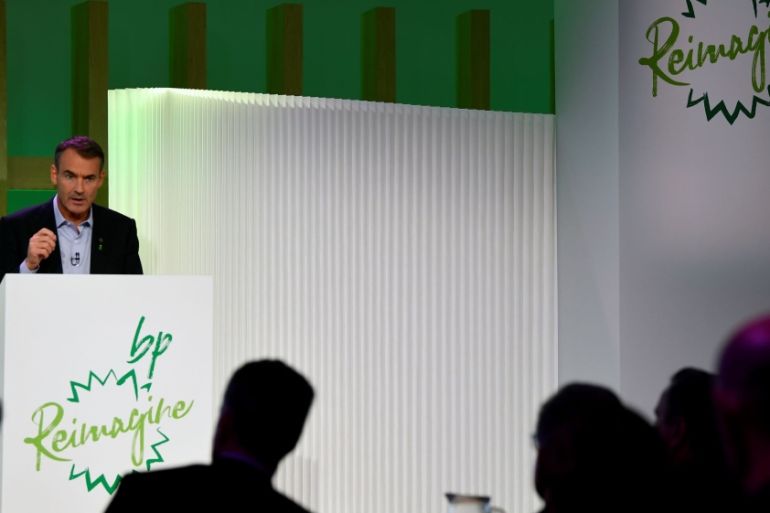New BP chief promises net-zero emissions by 2050
The pledge, made by CEO Bernard Looney, puts BP ahead of goals set by industry rivals, including all US oil companies.

BP’s new chief executive outlined plans on Wednesday to cut the company’s carbon emissions from its operations and barrels produced to net-zero by 2050, as part of a large overhaul of the 111-year old company.
The new plan also pledges to halve the amount of carbon in BP’s products by 2050. The announcement to cut emissions puts BP ahead of industry competitors such as Royal Dutch Shell, Total, Equinor and all of the United States oil majors.
Keep reading
list of 3 itemsEU power sector emissions drop as coal collapses across Europe
Facing climate change in two sinking towns
“We have got to change and change profoundly because the world is changing fast and so are society’s expectations of us,” BP CEO Bernard Looney said in his first major speech in the role.
BP did not specify how it intends to reach its 2050 targets. Smaller Spanish rival Repsol has set similar net-zero carbon targets for the oil products it sells at a cost of more than five billion dollars.
BP has tried reinventing itself before. A plan to build a large renewables business in the early 2000s ended with huge losses.
Since then, the world’s top oil and gas companies have come under heavy pressure from investors and climate activists to meet the 2015 Paris climate goal of limiting global warming to below two degrees Celsius (3.6 degrees Fahrenheit) from pre-industrial levels.
“The world’s carbon budget is finite and running out fast; we need a rapid transition to net-zero. We all want energy that is reliable and affordable, but that is no longer enough. It must also be cleaner,” Looney said.
Last year, BP produced around 2.64 million barrels of oil equivalent a day. Its absolute net-zero carbon target relates to every barrel it produces. It does not, however, encompass oil products which BP markets but does not produce itself.
Despite this new promise, environmental activist groups say BP’s new plan left many questions unanswered. “How will they reach net-zero … When will they stop wasting billions on drilling for new oil and gas we can’t burn?” wondered Charlie Kronick, oil adviser for Greenpeace, United Kingdom.
Last year, BP invested around $500m in low-carbon technologies including wind power, electric vehicle battery charging systems and solar power firm Lightsource BP. That compared with an overall budget of $15.2bn in 2019.
In one of its biggest-ever changes, BP will dismantle the traditional model of an oil and gas production, or upstream, unit and a refining, trading and marketing, or downstream unit.
“We need to become more integrated and more focused,” Looney added.